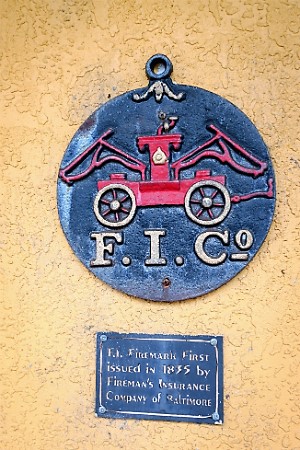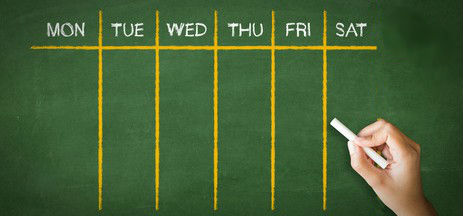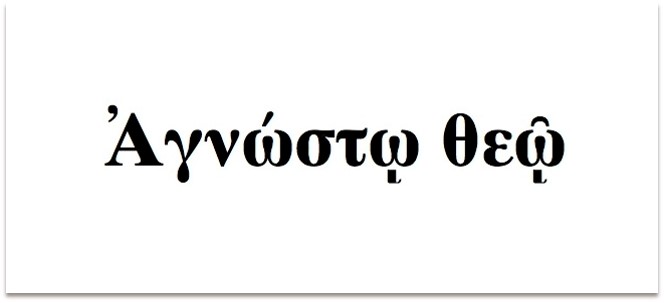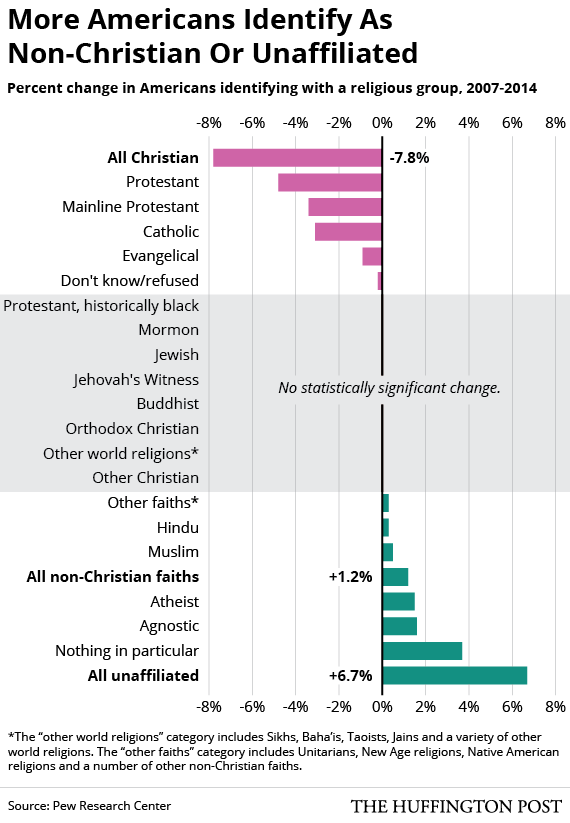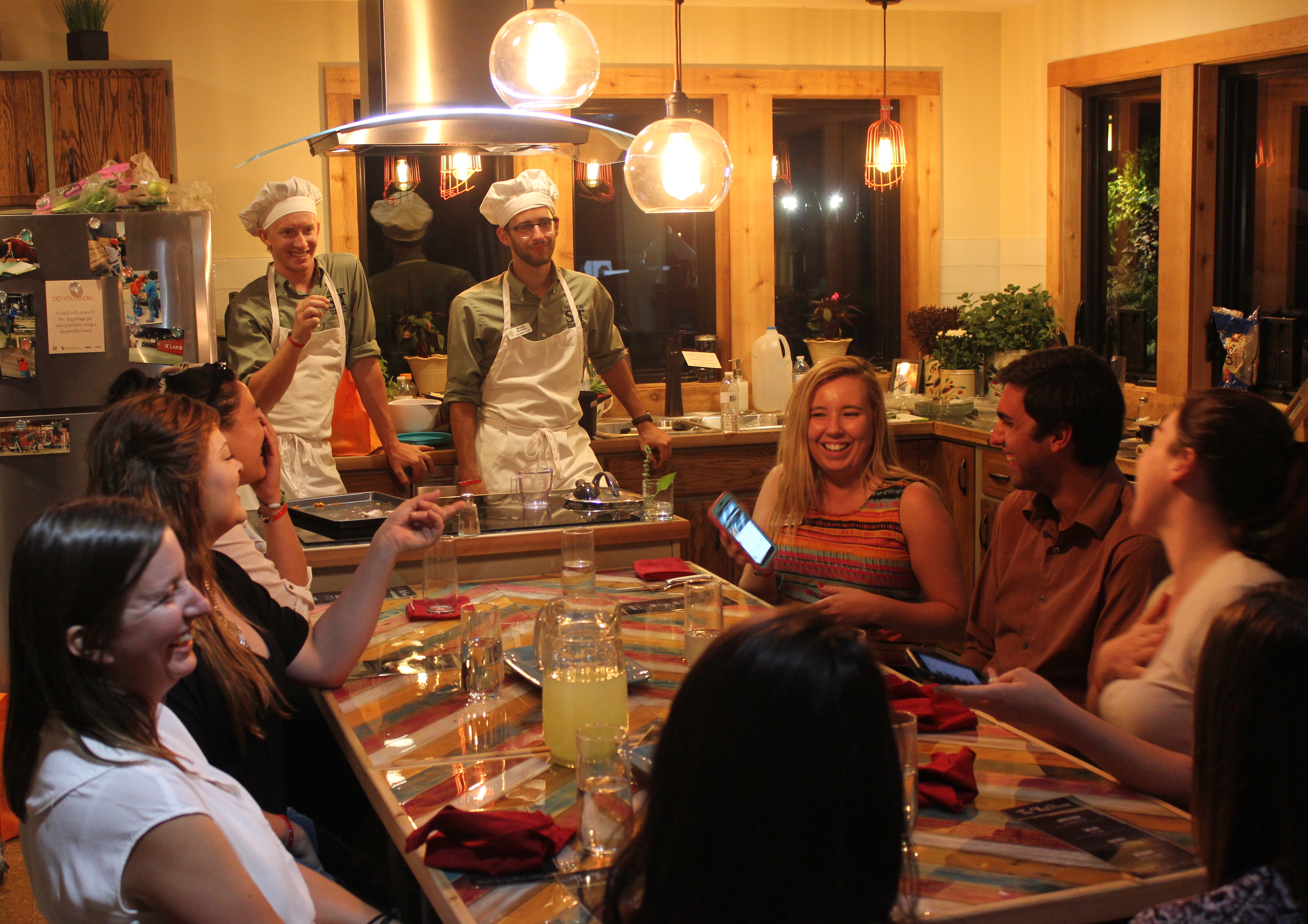Jesus Wept
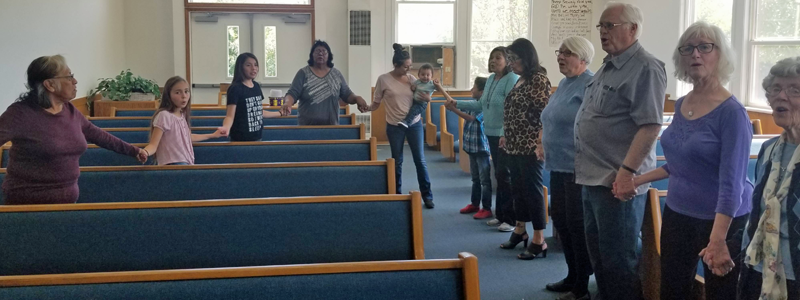
Weeping over the Whys of life
Jesus Wept
a sermon by Rev. J. Christy Ramsey
Click the title above for a mp3 recording
Audio from Valley Presbyterian Church, on March 8, 2020
edited from a flawless transcription made by edigitaltranscriptions; all errors are mine.
Sermons also available free on iTunes
Speaking to a congregation after a pastor candidate decided not to come and meet them.
I don’t know about you, but I always want to know why. I’m nosy that way. And **** in her email – Leigh didn’t tell you. In her email said “personal concerns,” “personal reasons,” something with “personal” in it. And that’s kind of code. The first part is “It’s not about you, it’s about me.” Which is good. So it’s not about you. That’s good. Second part of the code is “Don’t ask.” So the whole “why” thing is kind of shut down for a while. I don’t know. Maybe we’ll talk again in another 30 years, and we can look back and figure out what happened. I don’t know.
But the why. “Why” about ministers, there’s a lot of that. You know, I don’t know about other professions. I don’t know, maybe getting this wherever you work, social service, or working with people on all sorts of things. But even in retail, I guess I get a little. But, boy, when I was a minister, I got a lot of whys. You know? Why are you doing it that way? What kind of minister are you? Why aren’t you doing this? Why haven’t you been here? How come you did not visit there? I was in the hospital; why didn’t visit me. Oh, my god.
I guess I was pretty defensive. And always drawn to this verse in the story, “Jesus Wept”, because it was actually my first sermon was on this verse in the story because I think I knew what was coming Kind of prophetic. Yeah, people are going to be out there criticizing your ministry no matter what you do. Even Jesus got trouble. You know, he had the disciples kerfuffle there was the discussion about to go or not to go, he’s sleeping, he’s not sleeping. But the two sisters just really, really get me. And I emphasize that in the reading because the sisters ask the exact same question. And I don’t think that’s just a cut-and-paste error because they didn’t have that back then, they didn’t just copy the question from one sister to another without updating it.
But they asked the exact same question. “Lord, if you had been here, my brother would not have died.” Maybe not a question. More an accusation. And he had two totally different answers, responses to them. Not so much an answer. I mean, Martha comes out, and I guess maybe they’re alone together? Maybe ran out.
I’m thinking disciples, they’re always hanging around, I don’t know if they’re there. But not a crowd, anyway. Socially distant. They had this little theological discussion about Christ and the last days and the dead coming up and, you know, Christ is Lord, and do you believe this, and the faith statement. All in all a very, good seminary quiz answer about what you do when somebody has a crisis of faith.
That’s fine. You know, maybe that’s okay for you. You know, maybe that is a ministry to you. And I’m thinking it was a ministry to Martha, to hear about the faith statement and what we believe and the greatness that everything will even out in the great beyond, and by and by everything will make sense. God works all things for good, and we’ll all be together in heaven. Maybe that’s okay for you, and maybe even I need that sometimes. But in all the big and little griefs of the life, you know, everywhere from losing a pastor candidate to losing a brother, the idea that, well, you know, God’s going to fix it in the end. Doesn’t help right here and now. At least for me.
Then Mary comes out, and we know Mary has a whole crowd with her. The crowd came to comfort Mary. Did you catch that? They didn’t come to comfort Martha, I guess. Martha’s not the easiest person to warm up to, if you’ve been following her in the scriptures. Maybe there was other times she was really gracious and wonderful and had a lot of friends over. But this time they came to comfort to Mary. Maybe that’s an editing error. But still, they all following Mary out. They didn’t follow Martha out.
So there’s a crowd there. Same question. Lord? Is it a question? I think it’s an accusation. I think it’s a statement. Inside the accusation, the criticism, there’s faith wrapped up in there. It’s like faith wrapped in an accusation and given to him, you know, you can’t really say, well, don’t say that. Well, no, because inside the disappointment, there’s hope: “And if you had been here, my brother would not have died.”
Well, we already know his answer; right? I mean, we had the answer, and it worked for Martha; right? You talk about, yeah, I am the Lord. I bring up all the dead in the end of the time, and all the raising. You believe I’m the Lord and zippy, zowie, you got it done. I got it. I got this. I know this. But it says that Jesus saw her weeping. He saw the crowd. And he began to weep.
Now, that awkward word there, he began to be weeping or whatever that is, that’s a signal. Greek it’s called the aorist tense. They have this little annoying verb tense in Greek that we don’t have in English because we don’t have time to fool around with that stuff. Literally because aorist doesn’t have any time. The aorist verb, it just happened. You know? It’s like when a dish breaks and you ask the kids. They respond: “I don’t know, it just happened.” There’s no time associated with it. There’s no past, present, or future, and there’s no beginning and end. It just happens that in the great time-space continuum there was weeping.
He began to weep. And the crowd, you would think, might have said, what a crappy minister. He should have words of faith and assurance. He should have wonderful things to say, wonderful words of love. He should tell them about the coming raising of the dead, you know, like Martha, which they did not hear. You would think they’d be upset with him for weeping, of all things. Certainly he will never be the President if he cries in public.
But they said, “See how much He loved them.” See how much He loved them.
I know it’s hard for you to believe, but when I was in the ministry, a lot of people couldn’t believe I was a minister. I know it’s hard to believe. In fact, some of them would come up and say, “You don’t act like a minister.” And sometimes that was a compliment, and sometimes it was an accusation. It was kind of hard to tell sometimes where on the spectrum the comment was supposed to land. But “You don’t act like a minister” I got quite a bit. And I also have a book I’m writing, and I know it’ll be published someday, it’s called “Reverend Righteous Snappy Answer to Stupid Religious Questions.” I sure Mad Magazine will come back to publish it.
One of SRQ Stupid Religious Questions is this one: “You don’t act like a minister.” And my response is that is because I’m not acting. I am a minister. Deal with it. This is what a minister looks like. And, you know, I’m sure that women ministers get it more than than I do. Of course, the Christy thing didn’t help at all. But that’s what’s going on here.
You know, when someone dies, or when hopes die – I was really hoping for (the candidate) to come here. I was so excited. I want to know why. Why didn’t that happen? As if, if I knew, it’d be okay. But in reality, if I knew why, I’d still be upset. I’d still be disappointed. Even if she had the absolute most greatest reason in all the world. Maybe she’s engaged to be married, and her husband-to-be doesn’t want to move. That would be probably the best. I don’t know. So I would still be upset.
So why do I want to know why? It’s not going to help me. It’s just going to lead to more questions and problems and upsetness and why do I want to know why? It’s the first temptation; isn’t it? In the Garden of Eden, God said, “Don’t go to that tree. Stay away from that tree.” What do we do? “Why?” And then the snake picks up on that. And the snake says: “Psst. You’ll know why if you eat out of the tree. You’ll be like God. You’ll know good and evil. You’ll know all the whys. Go ahead, eat up there.” Oh, my gosh. That sounds great to us. We want to know why. We eat up. And then the troubles begin. Why?
1995. This is kind of a retrospect of my life, but that’s okay. You’re stuck with me. Ha. 1995 I decided to quit understanding computers. I remember the day. Up to then, from 1976 to 1995, I understood computers. I can understand why things work. I could take them out. I was getting into assembly language. Oh, my gosh. I knew it all. I knew those guys.
And when Win95 came out, especially on this day, when it changed the clock by itself without me, even though I set it the night before, I was so proud. The computer set daylight savings time, so I was an hour off even though I reset the clock. I realized I would never understand computers again. I wouldn’t know why. And I decided to focus on how. How, without knowing why, how can I work with them? How can I get them to do as I do? How can I help other people to get to do with them what I do? How do I live with computers that I do not understand?
And that’s where we’re at. We don’t like to be there. And Jesus, even in the why question about why did Lazarus die, why did – he wasn’t too much on the why. But even in that thing he talked, he talked about not why, but who? The why looks back; doesn’t it? Looks back to the past about things were going and lived back there and cause and effect and all that, and you get all wound up in craziness. And like I said, it doesn’t help here and now. The question is, who is God, and who are we in response to that? How are we going to live then?
The second encounter, with that accusation, that faithful accusation of, if you had been here, my brother would not have died. What kind of God is it that lets someone die? The God that weeps. The God that began to weep, and we don’t know if the weeping ever ends. A God that is always emotionally with us in our sorrow and grief and sadness.
When folks say, “Where was God when this terrible thing happened?,” that God was there feeling every bit of the pain and sadness and hurt and fear and crying along with us. And if we’re good, like the crowd back then, we’ll say, “See how much God loves us.” Not that he fixes stuff, not that he explains things to us, not that he makes all things right in the great by and by. But he loves us enough to weep with us at the sorrows and the unfairness and the evil and the tragedies and the challenges of this life.
So faith, the life of faith, the life of the church, the life of a minister, is not so much about finding out why, or explaining whys. You can’t do it. Hey, I can’t do it. For a 20-year-old computer I can’t tell you why it does things. People ask me that all the time. And I just say “Microsoft.” And that usually is enough. But the question is, for the faithful, work and life today is, given that we have a God who loves us so much to weep along with our tears, how do we live? What do we do? How are we with other people? How do we find to live? And that is a future thing, not a past thing with why why why, but how how how. And it all springs from who in the middle. Who are we as a people, who do we worship as God, will tell us how we live.
We live as a people that are compassionate. We live as a people that seek justice. We live as a people that gets angry when things aren’t the way they should. We live as a people that try to fix wrong. We live as a people that try to give sight to the blind, to free the oppressed, that deliver release to the captives. We’re those kind of people. We’re not saying, well, why are they blind? Why are they captive? Why are they oppressed? Why does God love all that? That’s only important if it figures us how to fix it. How to be faithful in a place we don’t know all the whys and the causes. And yeah, sometimes is weeping with those that weep.
Everytime you hear “politically correct” — consider subsituting “compassionate”
Disturbing trend in our country today. And I find it all summed up in the politically correct, which is used to dismiss any kind of concern or compassion for those that are not like us, or doesn’t experience what we experience. Oh, well, their concerns, that’s just being politically correct. You know, every time you hear that you can substitute the word “compassion,” and it works. Oh, that’s just being compassionate. We are the compassionate ones. Because we follow God, who is compassionate, who has passion with us, who is God with us in our sorrow and heartache. We are those kind of people.
You ever heard of imposter syndrome? Ever hear of that? Yeah, where you think you don’t deserve where you are, what you do, and how you are? And you think everybody’s going to find out one day I’m a fraud? It’s like that dream that you have where you think you’re in school, and you don’t have any of your homework done; and by the way, you’re naked, too. Agh. You know, that kind of dream. Everybody’s had that. Yeah, that one. That fraud, that imposter syndrome, I had that a lot, you know, as a minister because, well, the constant “You don’t act like a minister” didn’t help.
But I had a lot of that as a minister, and I realized how imperfect I was. I mean, I was my worst critic, still am, about how I’m not doing everything that’s right and good and should. And I was talking to my counselor about that. And I was talking about there’s at least two women that admit that I was a major part of why they became a minister. I got one on video, so I brought receipts.
A little deeper than the video clip, we talked a little bit about why I was a good model for entering ministry. Both pointed out to me privately that it wasn’t because I was perfect that they became a minister. Because both of them said, and this is slightly disturbing, both of them said – and these are different states, you know, different churches. Both of them said, “Well, I looked up, and I saw Christy. And I thought, well, if he could be a minister, I could be a minister.” You already felt that. You’re there now. Well, if he could do it, I guess I can do it. I think I may be good. I don’t know.
And she pointed out to me, you know, did you notice that it wasn’t your perfection that brought those women into ministry and to hear the call of God. It wasn’t how perfect you were or your mastery of things, but it was exactly your imperfections, your sincerity and honesty about your limitations and how you didn’t have all the answers, that let them hear the call of God. Wow, earned their money that week, huh, yeah, the big one. Here’s what one says.
And she went on – the second Sunday we were there was 9/11 in her church. And she asked me – I didn’t know who she was. Week 2, I didn’t know anybody. She comes up, she goes, “Are you going to speak about 9/11 in the children’s message?” I go, “Yeah, I’m going to talk to the kids about it.” “I’m not having my kids in church, then.” Off she goes. I go, well, hello to you. You know.
And we went from that, over the year, the 18 months I was there as interim, that a year from then her and I led a remembrance service with communion and multimedia for the community that night for 9/11. And then she went on from that to go to seminary, become a minister, get a church, and become the editor of Presbyterians Today, the PC(USA) magazine. And here’s what she said as I left that church.
“On a more personal level, I find that you bring an honest vitality to the faith that I haven’t experienced before. You make it something to live rather than something to ponder from the pew. More importantly, you managed to do it without overwhelming earnestness, sappy sentimentality, or condescending judgment. Your approach feels fresh, straightforward, and comfortable. I will miss that.”
And I really treasure that, obviously. Something to live, and not something to ponder from the pew. Something to figure out how to be faithful instead of struggling with the whys and the wherefores. That’s faith. That’s what we’re called to do.
Amen.






 Christy Ramsey
Christy Ramsey



